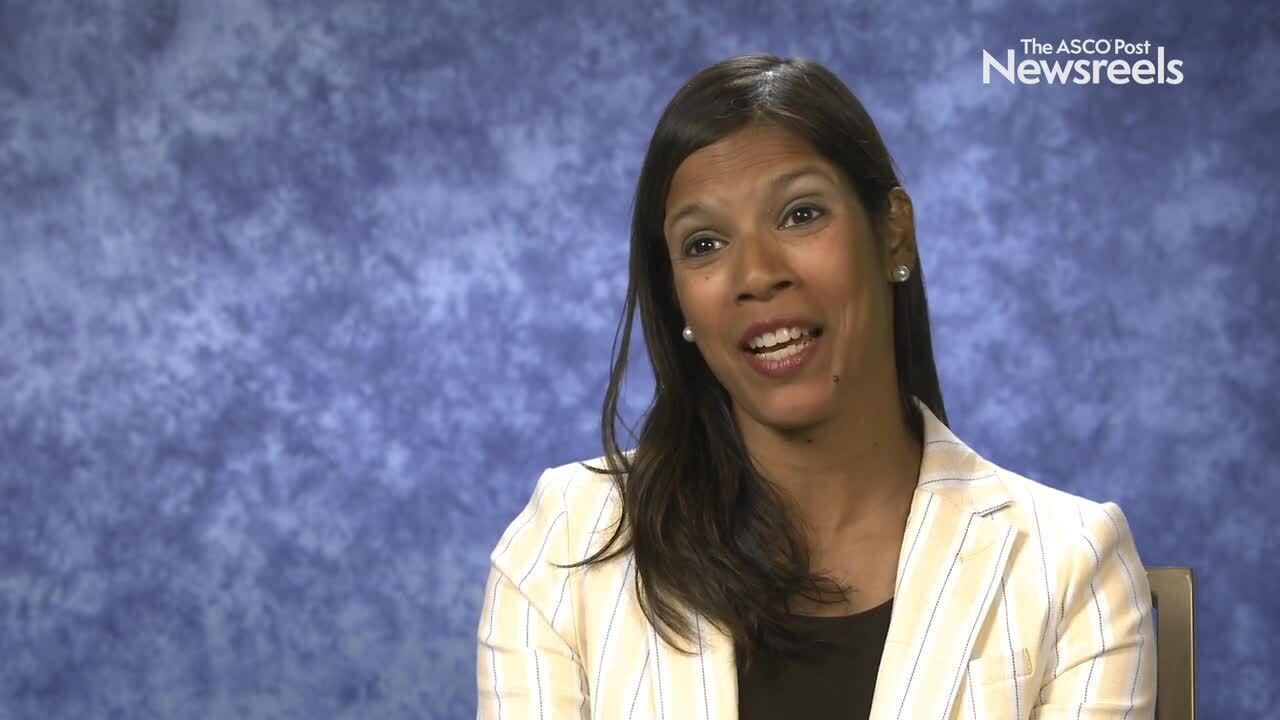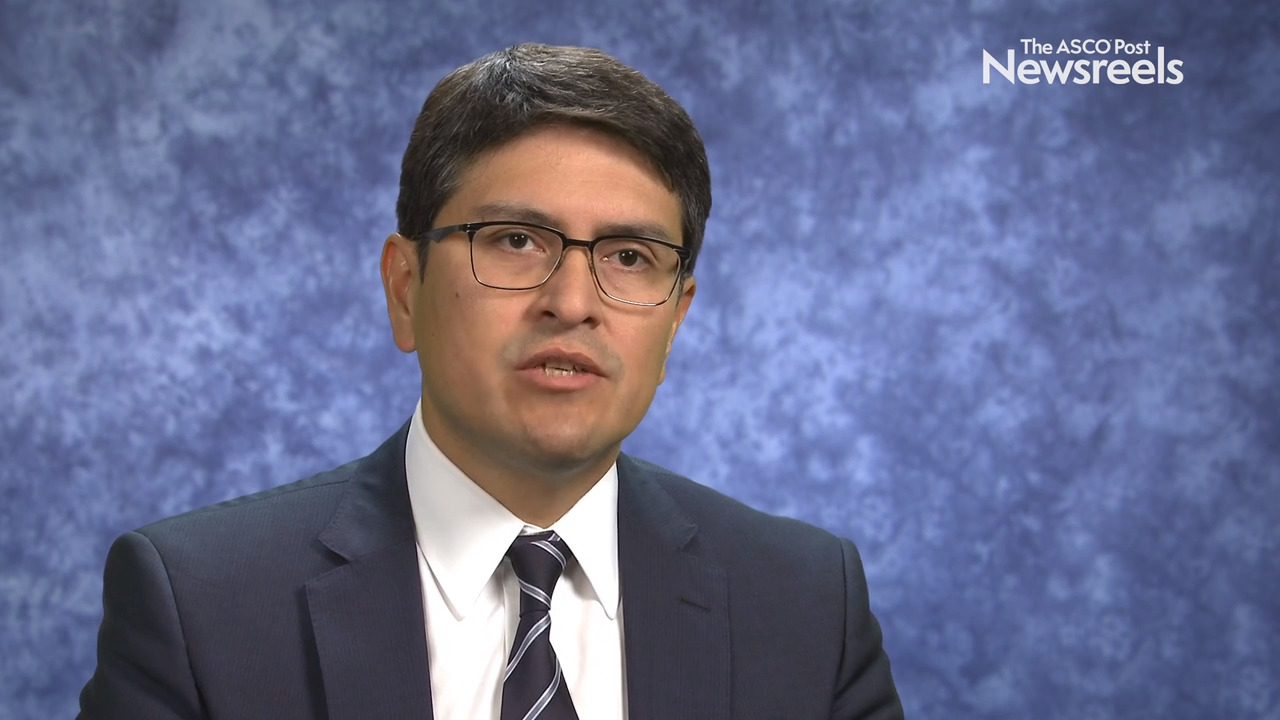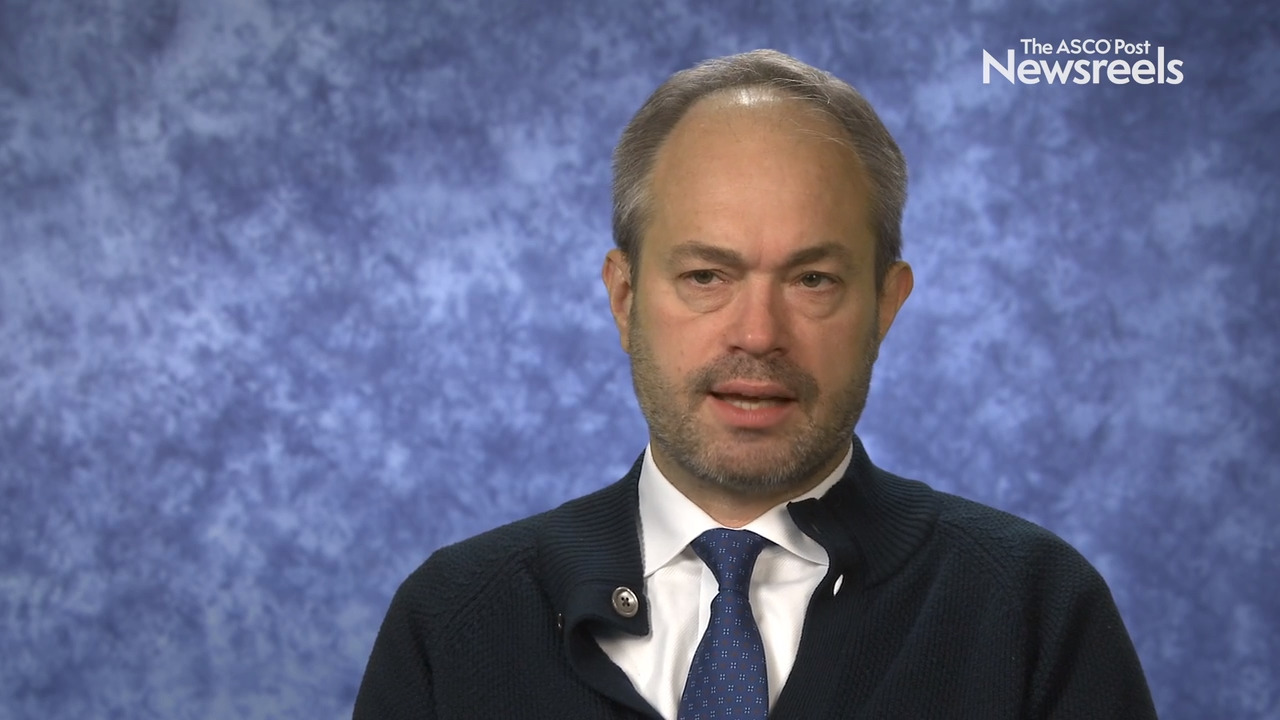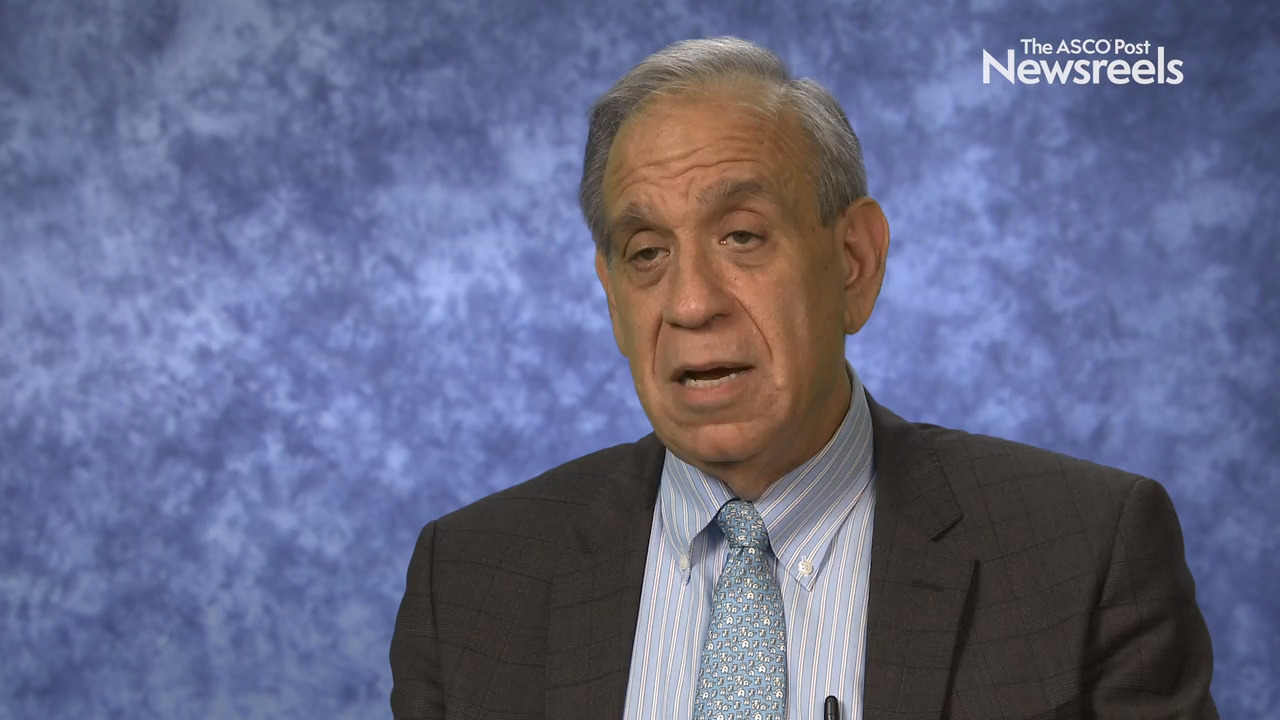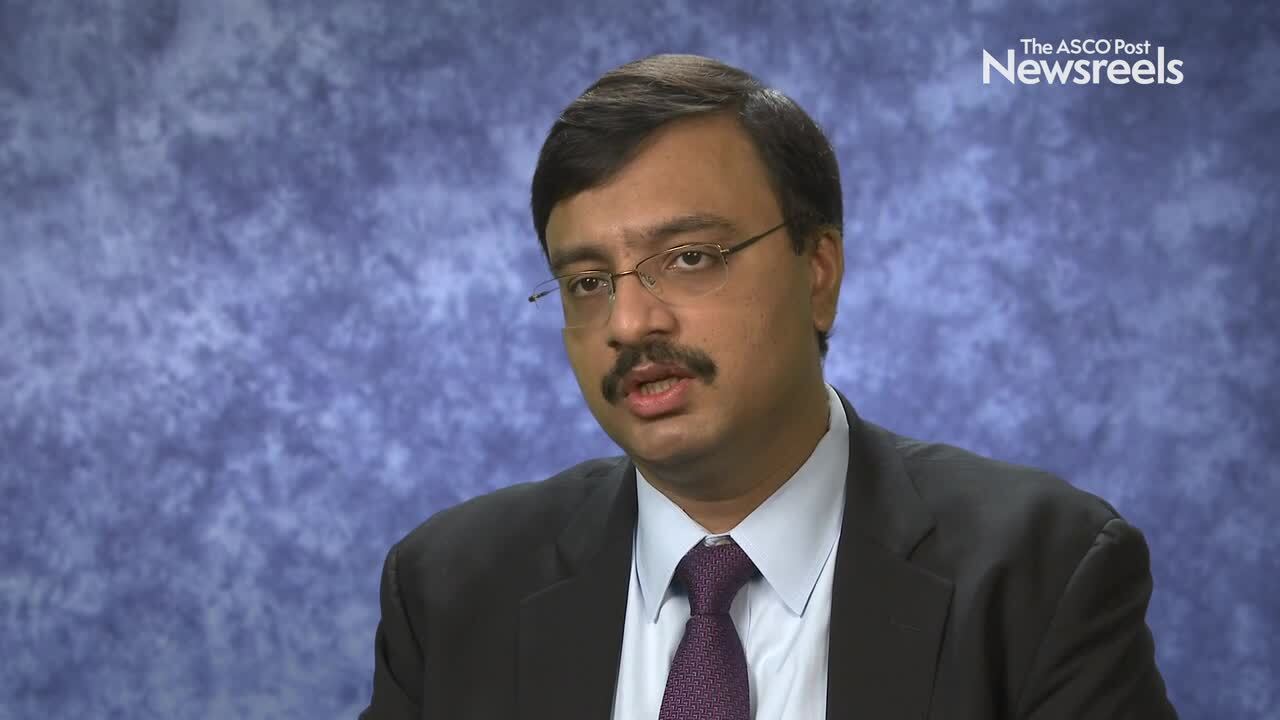Rafael Bejar, MD, PhD, on Myelodysplastic Syndromes: Advances in Personalized Therapeutic Approaches
NCCN 2019 Annual Congress: Hematologic Malignancies
Rafael Bejar, MD, PhD, of the University of California, San Diego Moores Cancer Center, discusses the tailored nature of MDS treatment, including somatic mutations that could alter treatment decisions, and novel therapies with predictive biomarkers.
The ASCO Post Staff
Nina Shah, MD, of the University of California, San Francisco, discusses the debate on fixed duration vs waiting until disease progression, a key question for clinicians treating patients with multiple myeloma.
The ASCO Post Staff
Jorge J. Castillo, MD, of Dana-Farber Cancer Institute, discusses the many advances in treating relapsed and/or refractory multiple myeloma, including novel immunomodulators, proteasome inhibitors, and monoclonal antibodies, as well as emerging treatments such as chimeric antigen receptor T-cell therapy and antibody-drug conjugates.
The ASCO Post Staff
William G. Wierda, MD, PhD, of The University of Texas MD Anderson Cancer Center, offers commentary on the debate about evolving strategies in first-line chronic lymphocytic leukemia, the clinical trials on such agents as ibrutinib, BTK inhibitors, and venetoclax, and the interest in chemoimmunotherapy as a fixed duration treatment.
The ASCO Post Staff
Andrew D. Zelenetz, MD, PhD, of Memorial Sloan Kettering Cancer Center, discusses the nature of biologic molecules and their importance in future therapeutic innovation.
The ASCO Post Staff
Nitin Jain, MD, of The University of Texas MD Anderson Cancer Center, discusses the debate on evolving strategies in first-line treatment of CLL.
